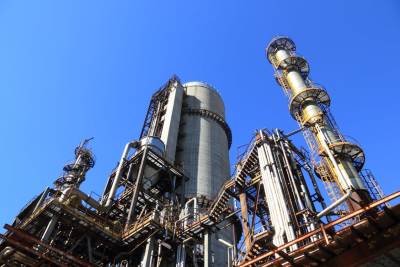Table of Contents
Q: What do voters need to know about the economy?
(Topics: The Economy, Q&A | Back to Home)
| A: That it's complicated, and despite what you hear we really don't know much about what kinds of interventions help or hurt. |
This may be the most important general knowledge topic for Americans today. If you know what is meant by the phrase “the economy” then you're better equipped to make all kinds of personal decisions about your life. That's because more than ever, individual Americans have the capacity to shape their own future—and the future of our country.
Here's what you need to know.
The Economy is a Factory
 Imagine you find yourself in an enormous factory. There are pipes and valves and gauges everywhere. Giant shafts turn, gears enmesh, and noise echoes constantly in every room. As far as you can tell, there is no order or structure. You can't understand almost anything you see. All you know is that there is screeching activity, and people scurrying everywhere.
Imagine you find yourself in an enormous factory. There are pipes and valves and gauges everywhere. Giant shafts turn, gears enmesh, and noise echoes constantly in every room. As far as you can tell, there is no order or structure. You can't understand almost anything you see. All you know is that there is screeching activity, and people scurrying everywhere.
This is what the economy is: a collection of human-built machines that connect to one another in astounding ways. And while many people understand small parts of this system, absolutely nobody understands the entire thing.
The economy is essential, but it is beyond our grasp to understand.
The Economy Requires Fuel
The pieces of the economy are all machines. They are engines that require fuel to operate, just like the engine in your car.
But the economy doesn't run on gasoline. It runs on confidence. When people believe that the economy is working, the economy does well. When we don't, it falters. And if we're too confident, then the fuel is too rich and the economy sputters and chokes.
The economy requires our confidence…but just the right amount.
The Economy Requires Lubricant
Machines need oil too. That lets the parts slide past each other. If there's not enough lubrication, the whole system seizes and shuts down. But if there's too much, that oil leaks everywhere and makes an awful mess.
Our economy doesn't use oil for lubricant. Instead, the economy needs money to keep things flowing. Not enough money, and the economy struggles. Too much money and the value of a dollar drops.
The economy requires money…but just the right amount.
The Economy Requires Maintenance
It's no surprise that keeping the economy running requires paying attention to it. We need to watch over the machines, monitor their performance. There are dials and indicators and reservoirs to measure.
We often forget about routine maintenance, especially when things are going well or we are otherwise distracted. That's why our cars and houses fall into disrepair. But it's also all too easy to get obsessed with maintenance, becoming a sort of hypochondriac for keeping things perfect. And that takes machines offline, into the shop, thus slowing everything down. How diligently and how frequently you maintain these devices is a matter of regulations.
The economy requires regulation…but just the right amount.
Economic Policy is Confidence, Money, and Regulation
When your government tries to influence the economy, they only have three broad categories of levers:
- Adjust the amount of confidence we all have
- Influence the amount of money we have access to
- Modify the intensity of monitoring and regulations
But no one in the government—and no one anywhere—truly understands the economy as a whole. It's far too big and too complicated. All the government can do is try to keep these elements in balance, trying to keep the factory running well.
Economic Opportunity Requires Stability
When there are wild swings in the economy, it's difficult for individuals to get ahead. Why would you change jobs, start a new business, invest your money, or go to school if you thought the economy was unpredictable?
The role of the government with regard to the economy is to promote economic stability. How to do that is a nearly impossible question. But everyone should know the objective.